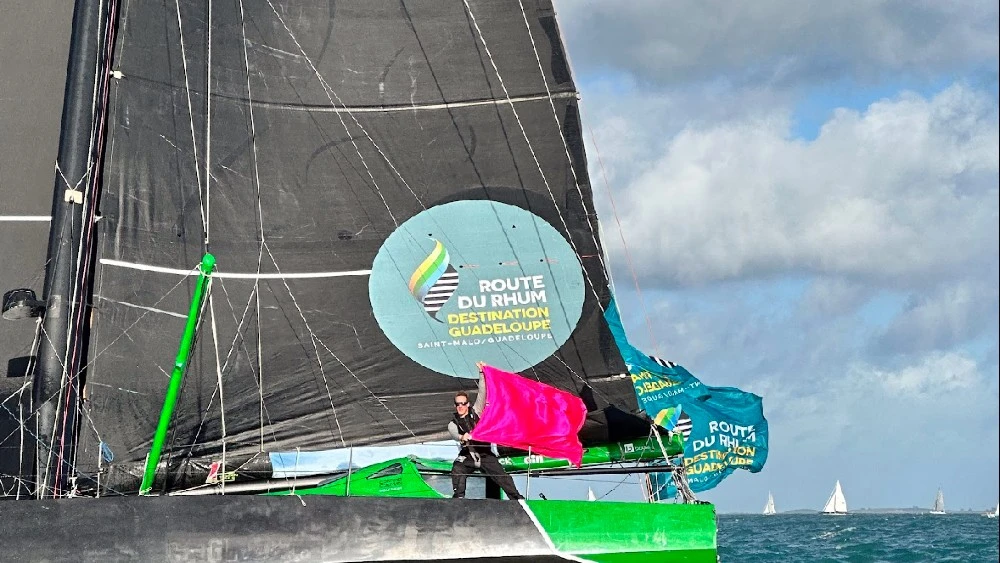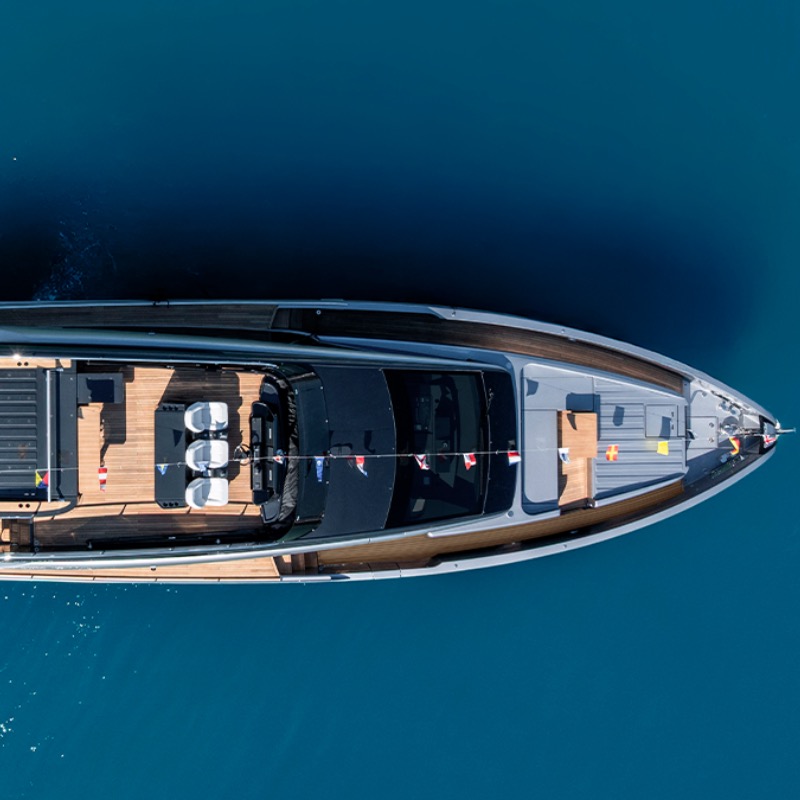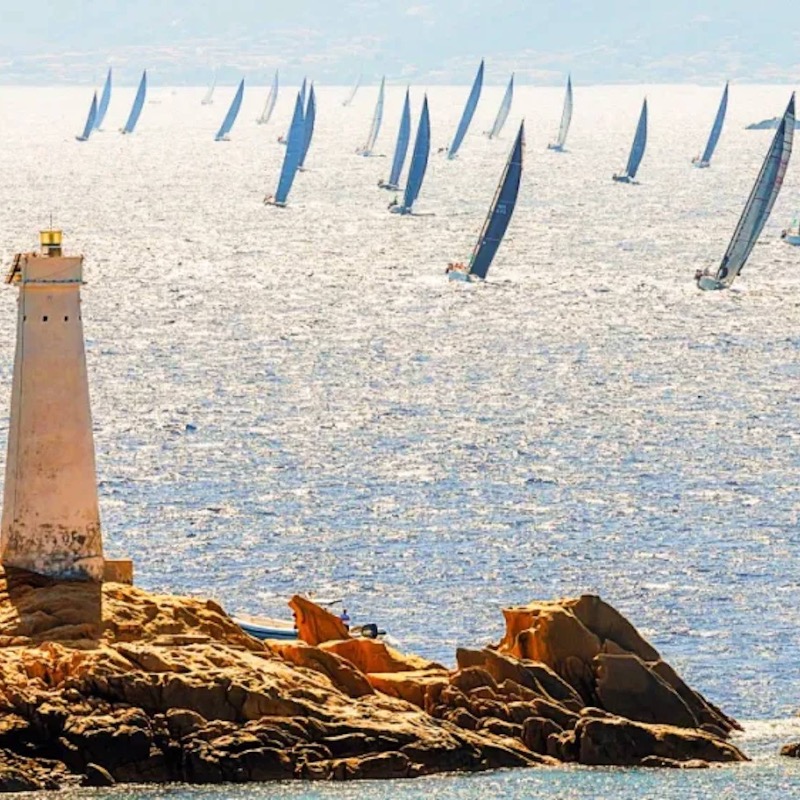The Route de Rhum is one of the most fascinating transatlantic races, pitting single skippers in multiple sailboat classes in a 3,542-mile sprint from Malo in Brittany, France to the Caribbean island of Guadeloupe. This year, 138 solo sailors started the race, with several retiring due to the rough conditions and mechanical failures on the boats.
Conrad Colman, sailing his boat Imagine, arrived 13 days, 20 hours and 23 minutes after leaving Malo, placing 18th of 34 finishers in the Imoca class. While the finish was uneventful and Colman faced the same rough weather, 25-foot seas, squalls and other challenges of the world’s largest transatlantic race, Imagine was carrying something no other boat had: Beautiful silk panels from a New York-based artist.
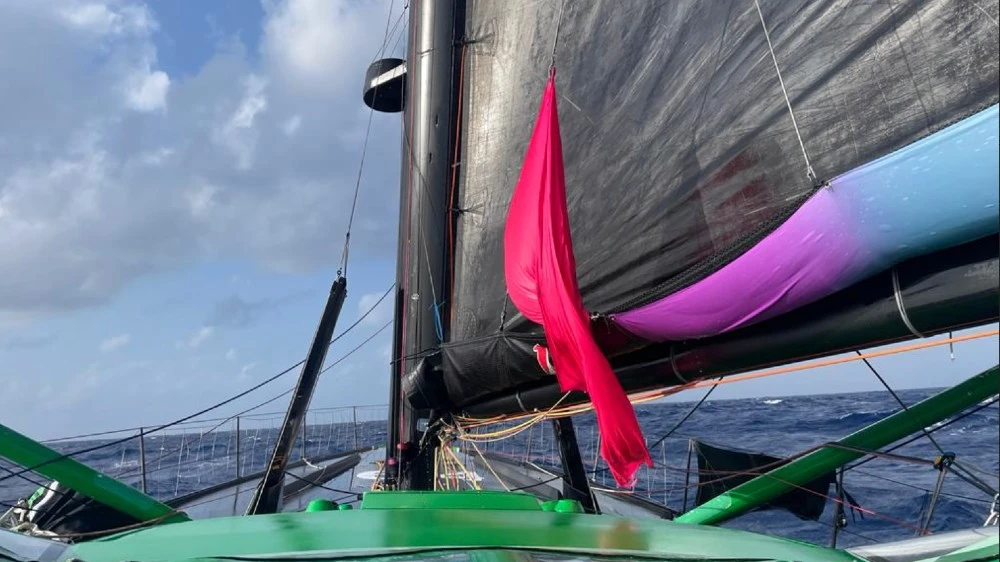
James Perkins is a land artist, with a studio on Fire Island, outside of New York City, who has presented his work in multiple forms. The land school of artists create natural works of art that blend with the landscape. Perkins’ work has been profiled by The Wall Street Journal as well as on CNBC, ABC, and FOX Business, mostly because of its unique connection with nature. He refers to his artwork as “post-totem structures” that consist of wood and silk objects placed in different landscapes. They are eventually removed from nature and exhibited in a gallery.
But being on a sailing yacht was a different type of setting for the artist. “I am interested in capturing the energy and beauty of the ocean, the example of Conrad’s passion and endurance, and through our collaboration to demonstrate the human virtue of weathering storms and pushing through to achieve a long-term goal,” Perkins said before the race.
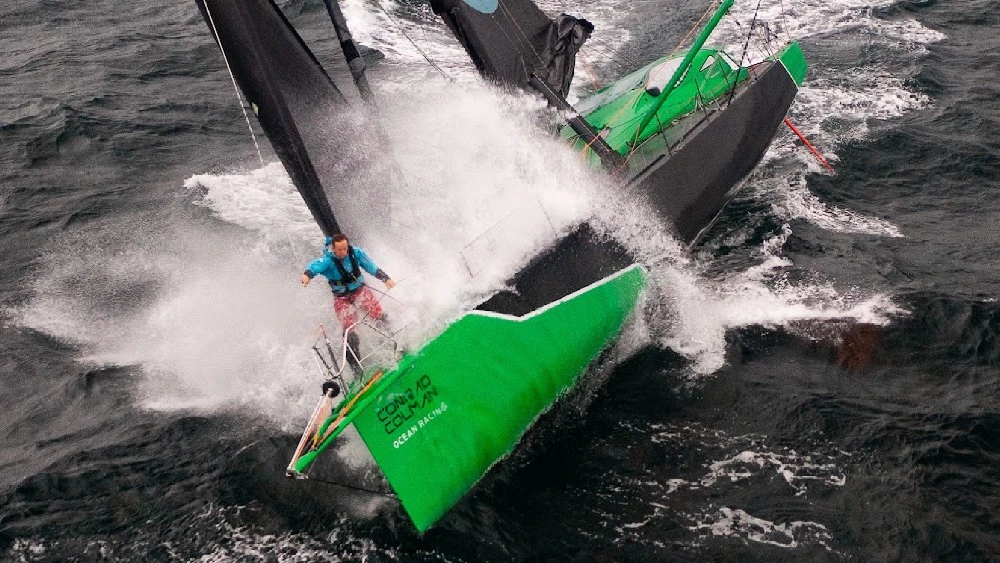
The pairing of artist and transoceanic sailor is not as unlikely as it might seem. A mutual friend recognized common themes in their work—beauty, strength and interdependence of humanity with the environment. Plus, they both depend on nature for their professions. Imagine proved to be a “perfect mobile studio” for Perkins’ art. The silk panels added a dramatic, colorful flair to the racing yacht, but were in tatters by the time Imagine reached Guadeloupe.
Perkins says that was part of the process, since he expected the forces of nature—wind, sun, salt and rain—to weather each piece differently.
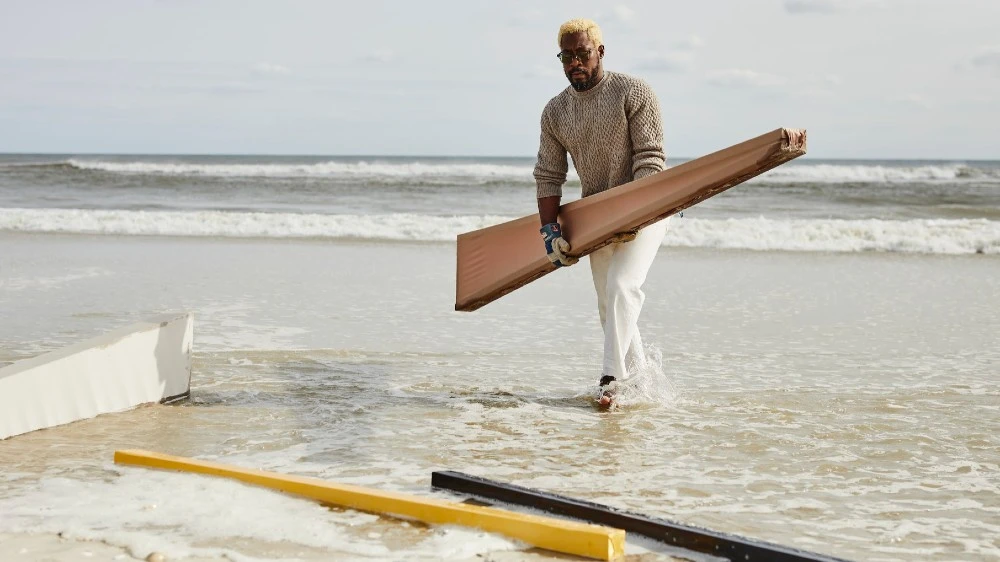
For his part, Colman enjoyed having the artwork on his boat. “To be the custodian and choreographer of James’ art while watching the minute-by-minute transformation of the silk—both in color and texture was amazing,” he says. The two plan to collaborate on future ocean projects.
The post-ocean artwork will be exhibited at the James Perkins Studio in January 2023.





